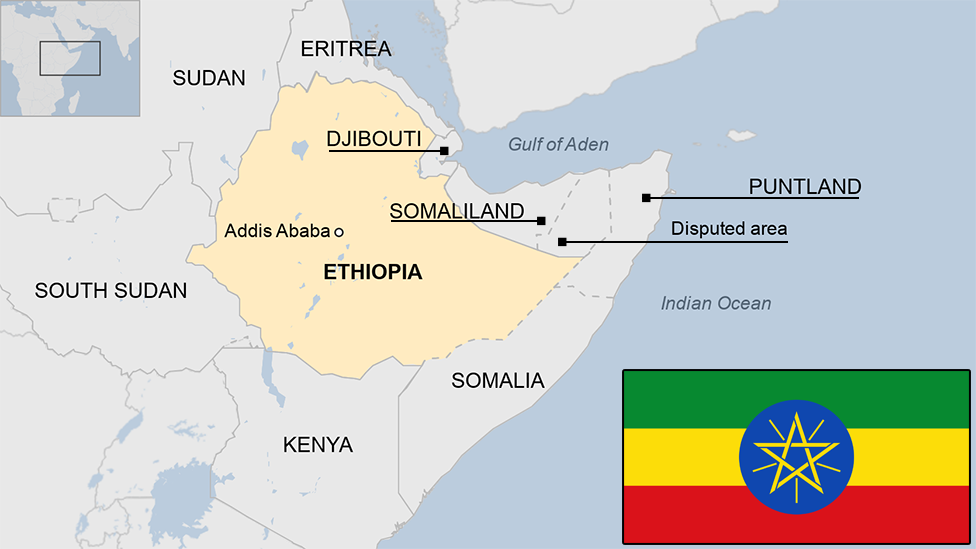Ethiopia PM Hailemariam Desalegn 'open to criticism'
- Published
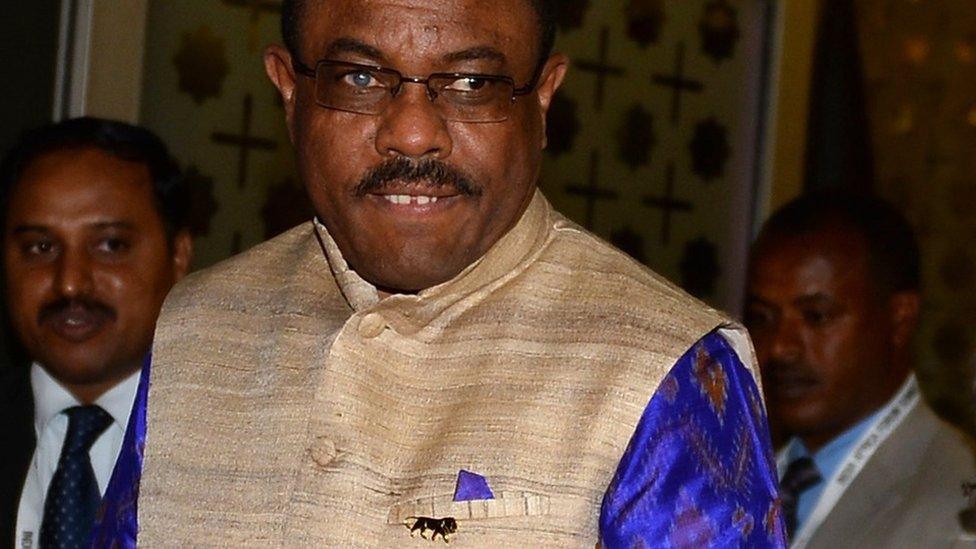
Hailemariam Desalegn's party won a landslide victory in May's elections
Ethiopia's prime minister has told the BBC he is not afraid of criticism from journalists, despite the country's reputation for stifling free speech.
"Free media is very essential for the democratic process and... development," Hailemariam Desalegn said.
He insisted some bloggers and reporters arrested last year were not real journalists and had terror links.
Charges of terrorism have been dropped against all of the so-called Zone 9 bloggers.
Five were freed in July after more than a year in jail ahead of US President Barack Obama's visit; the other four were acquitted of terrorism charges by a court last month.
The Zone 9 website had carried pieces critical of the government.
'We are not perfect'
But Mr Hailemariam said that their profession had not prompted their arrests, rather evidence linking them to groups wanting to destabilise the government.
Ethiopian PM Hailemariam Desalegn on regional concerns and human rights
"This has to be very clearly underlined because that shouldn't be confused with the noble profession, journalism and the work that journalists do in this country," he told BBC World Service Africa editor Mary Harper.
"We are ready to be criticised by any journalists because we know we are not perfect," he said.
The diversity of Ethiopia meant that democracy and human rights were central to its survival and success.
"There is a a young, dynamic population in this country, with all the social media information flow - so without democratic discourse it's not possible to continue as a country - we believe we're on the right track."

Ethiopia and al-Shabab:
Ethiopian troops have been helping Somalia's government fight al-Shabab and Mr Hailemariam said the Islamist militant group was "now diminishing".
Concern now centred on how the Somali-based group, which is aligned with al-Qaeda, might become linked with so-called Islamic State (also known as Isil) and other groups.
Ethiopia was working with the global community, including countries in the Middle East, "to control Isil's infiltration in Somalia and al-Shabab", he said.
"But this is a very tricky job and we have to be very careful and be vigilant in this regard."

China's slow-down:
Ethiopia has been enjoying rapid economic growth in recent years and also enjoys a close relationship with China.
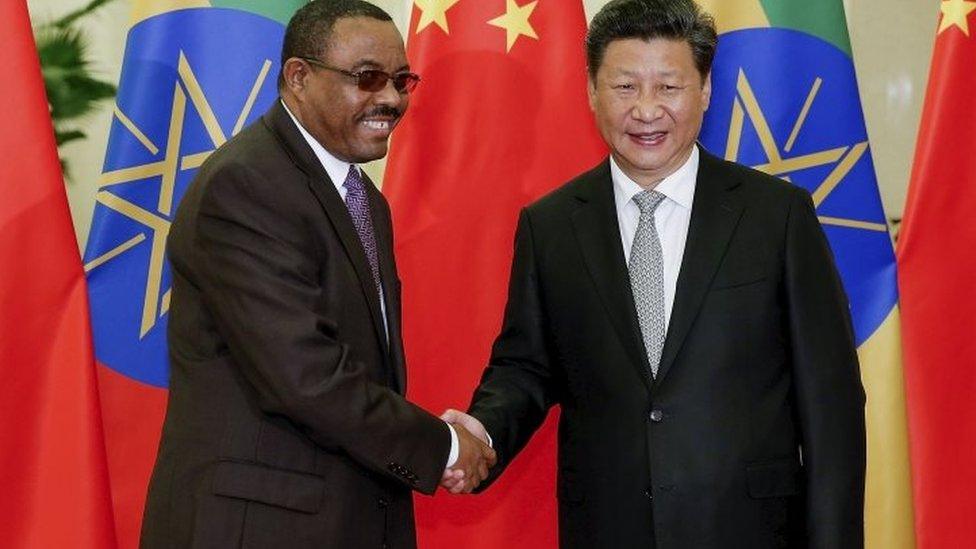
Hailemariam Desalegn visited China in September
The prime minister said any decline in the global economy, be it in the European Union - Ethiopia's biggest export market - or China did not affect the country too badly as private sector investment was the main focus of its economy.
Cheaper labour costs in Ethiopia could be an advantage in such an environment.
"More manufacturing can relocate from China to Ethiopia so it's an advantage in that sense," he said.

Eritrean migrants:
Eritreans are among the largest groups of people trying to get into Europe, along with Syrians, Afghans and Iraqis.
The international community should press for change in Eritrea if it wants to prevent Europe's migrant crisis from worsening, Ethiopia's leader said in the BBC interview.
"The regime is putting all the young people into concentration and military camps in the name of military service - this has to stop," he said.
Ethiopia and Eritrea remain bitter rivals since a bitter 1998-2000 border war that killed some 70,000 people.
Mr Hailemariam said his government was ready to support Eritreans fleeing by providing education, training, and in some cases jobs, but he added that Ethiopians already had problems of their own.
Eritrea's ambassador to the UN Girma Asmerom dismissed Mr Hailemariam's claim of a link between military service and migration as "pathetic and ridiculous".
He told the BBC Focus on Africa radio programme that Ethiopia should deal with its own internal problems first.
"There are 15 million Ethiopians in need of food assistance and thousands of people are fleeing the country."

The BBC and Ethiopia
He was also asked about a BBC proposal to introduce a news service for Eritrea and Ethiopia on medium- and short-wave radio.
Details of the suggestion, which would need UK government approval, are not known.
"I am not sure what kind of services you're going to launch, but my concern is that you have labelled Ethiopia with some countries like North Korea, so that's a very dangerous move and I think we oppose that."
- Published20 February 2015
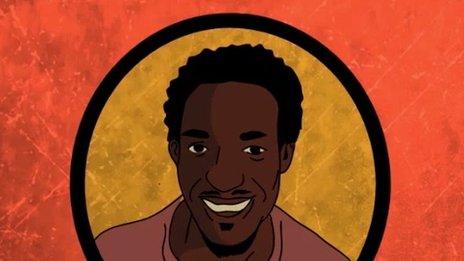
- Published30 July 2015
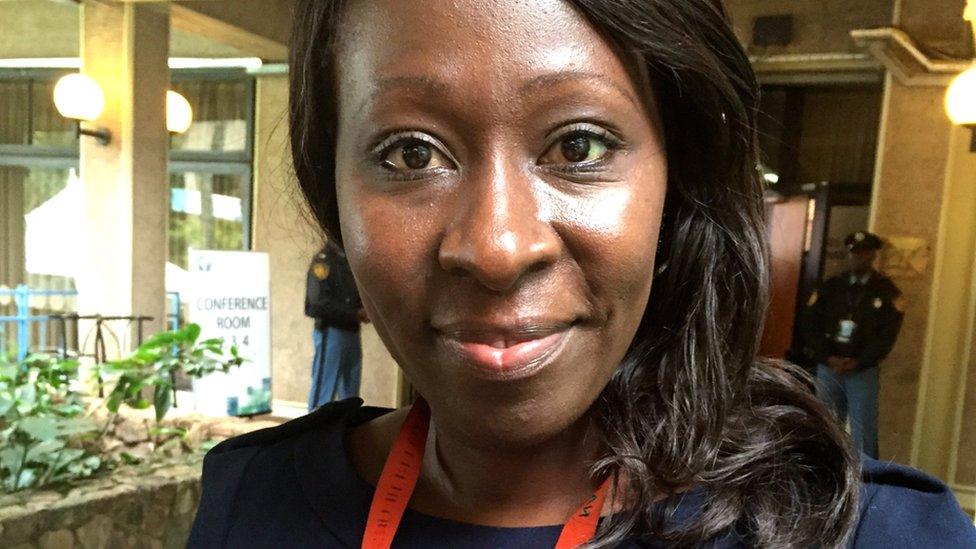
- Published2 January 2024
